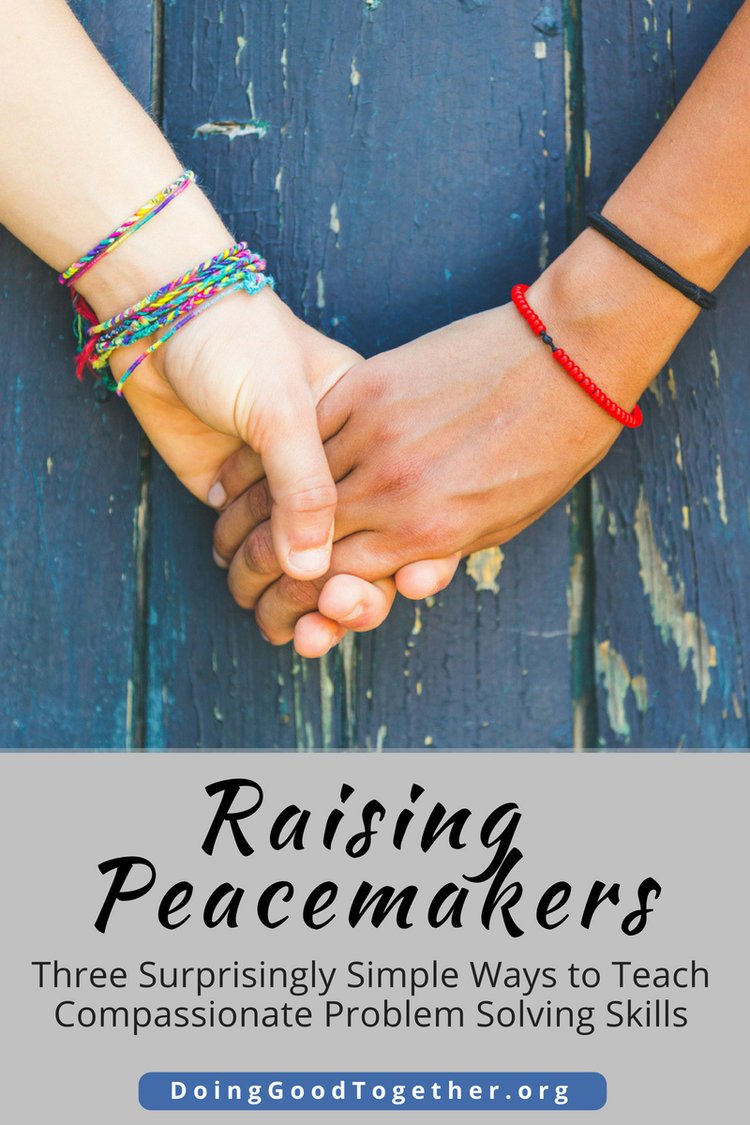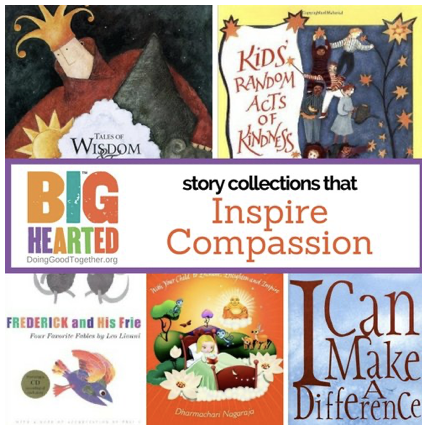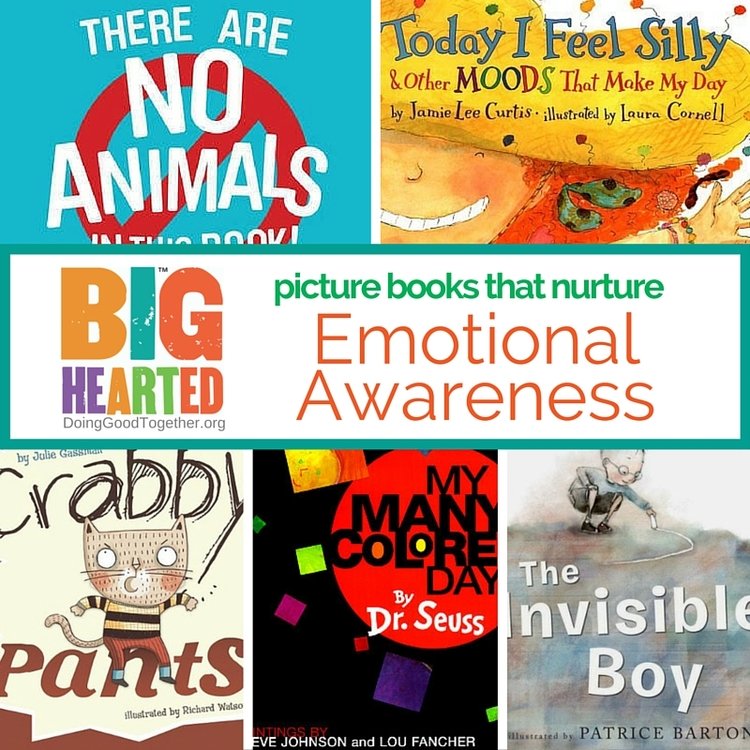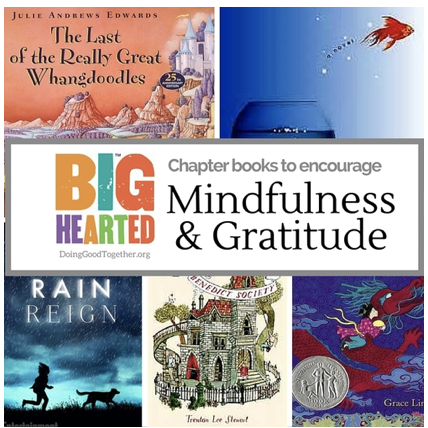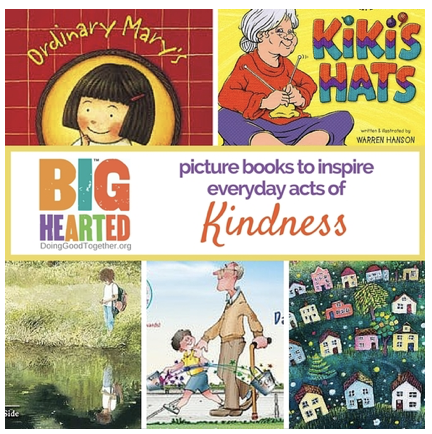We're bringing you a special edition of the blog, created by Doing Good Together's executive director, MiaLisa Millares.
There is such great sadness in the air. The country is mourning the loss of innocent children and their teachers in yet another tragedy. The last few years have pushed us to our limits as we watch our world become more and more polarized over conversations around gun laws, mental health, the pandemic, race, and a war that rages in Eastern Europe. It seems almost impossible to take a breath.
The news is hard to watch. Social media is not an escape. At times, I try to hibernate when it becomes simply too much to bear, retreating into my own little family world, hoping for a respite. Or, I compartmentalize and focus on work, kid stuff, or anything that will take my mind off of the reality of the latest devastating news.
But we, as parents, don’t get the luxury of retreating from the tough issues for long.
I struggle with how much to share with my “babies” (ages 9, 7 and 2). But I ultimately know that my children need to hear the truth – in age appropriate ways – even when it breaks my heart to share it with them. My children need to hear the truth so they can be safer. They need to hear the truth so there is hope that they can build a better, safer world. They need to hear it directly from me so I can give them the best information in a way that is most effective because I know them better than anyone in the world.
I do not pretend to have all the answers about how to do this. But, I can share what I have done. It is all a judgment call. Here are my suggestions on having these challenging conversations along with some resources that have helped me – and might help you as well.
Here are concrete things parents can do to start difficult conversations with your children:
Self Care: Take care of yourself before you embark on challenging conversations with your children. Research shows that children notice how their parents are handling the traumatic events in their lives and it can affect the way they handle their own life. So come to the conversation with a calming presence to set the tone for your children. Take ten minutes to meditate before offering advice.
Think Ahead: Think through what you hope to share with your children and take into consideration their ages and stages of development. Talking to a young child is, of course, different from talking to a teenager. Personalities differ as well, and some children may be more curious and inquisitive while others are quiet and reflective.
Timing: Find a good time to connect with your child. Make sure it is a time when you don’t have to rush and that you can answer their questions thoughtfully. A rushed conversation fuels anxiety. Consider going for a walk in the woods, taking a drive to a quiet park, or cozying up in blankets in your family room.
Follow Their Lead: See what your child already knows about the situation at hand. This gives you the opportunity to address any misinformation they may have gleaned from another child or misunderstandings they’ve had from watching media. Let them ask questions that can guide the conversation.
Be Direct and Concise: Let them know what is happening or has happened (to the extent you are comfortable). But don’t overshare. Be honest with them about what you know and what you don’t know.
Rely on Stories: Sometimes it is hard for children to process information that is difficult. Reading stories together or engaging in play can help them to understand the big concepts in a more digestible format. They will process what they need to as they are ready.
Actions Speak Louder than Words: We know from research that taking action alleviates anxiety and improves physical and mental health. When the timing is right, discuss as a family ways you can help others, whether it’s expressing gratitude for helpers, such as teachers, or offering condolences to those experiencing grief.
Provide Opportunities for Expression: Kids need to know that you are always available to talk with them. However, not all kids process through talking. Big conversations with children lead to big emotions and feelings. Kids let out their feelings in different ways. Some may need to do something physical like yoga or breathing exercises. Other children may prefer to color or draw, while others may use music or journaling to express their thoughts.
Limit Screen Time, and Increase Time Outdoors: As adults, we may want to remain tuned into the news of the world, but an abundance of screen time can quickly turn into information overload. For children, exposure to unwanted content increases when the news and social media are focused on a singular topic. Studies have shown that one of the best opportunities for a “digital detox” is to lose oneself in the awe and wonder of nature. Warmer weather makes it easier to encourage family walks, nature scavenger hunts, and even just staring up at the clouds.
It isn’t easy to start these challenging conversations. Each time I do, I am reminded of how perceptive and wise our children can be. I am awed by their genuine curiosity, depth, candor, and desire to take action. While having these conversations may break your heart, they will also give you hope that the future can and will be better. And, don't we all need a little bit of hope just about now.
Here are some resources that may be helpful as you decide how your conversation may proceed.
National Public Radio. “What to say to kids about school shootings to ease their stress”
NAEYC. Being a Helper: Supporting Children to Feel Safe and Secure After Disasters.
Doing Good Together. “How to Talk to Kids about Death and Grief.”
MiaLisa Millares is executive director of Doing Good Together™ (doinggoodtogether.org), a Minneapolis-based, national nonprofit that works to empower families to raise children who care and contribute.



